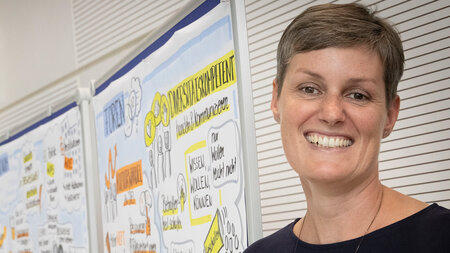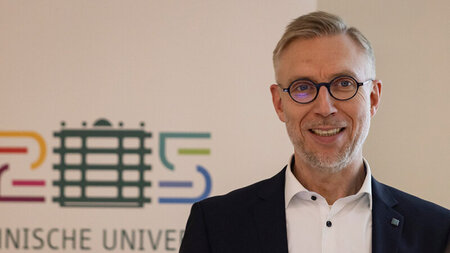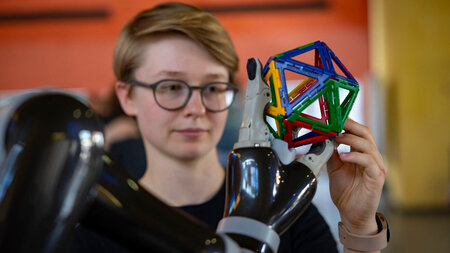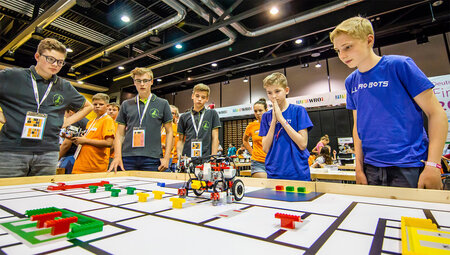TechnoSapiens: Perceptions and Stereotyping of Bionic Body Restauration and Augmentation
Funding Period: 01.01.2020 - 31.12.2023
Funding: DFG (CRC 1410 Hybrid Societies)
Principle Investigators: Prof. Dr. Frank Asbrock, Prof. Dr. Guido Brunnett, Prof. Dr. Bertold Meyer
Researchers: Maximilian Bretschneider
Project Summary
We aim to analyze the self- and other-perception of users of Embodied Digital Technologies (EDTs) as additions to or substitutes for their body parts and how such EDTs change social interactions among users and non-users of this technology. In a nutshell, we want to examine how merging bodies with technology affects the psychological processes underlying social human interaction (e.g., changes in stereotypic perceptions). This adds to the CRC a focus on the unique challenges and potentials of hybrid societies for the perception of and interaction with hybrid human-technical systems on the individual level.
Bionic EDTs, such as bionic prostheses, implants, and exoskeletons, promise to enhance the abilities of able-bodied individuals and to restore abilities for people with physical disabilities. Previous research shows that people with physical disabilities are perceived as warm and incompetent, but little is known about the perception of bionic EDT users with enhanced abilities. Stereotypic perception is the basis for social interactions and also affects self-perception. Consequently, stereotypic perception of bionic EDT users is likely to affect their impression and intentions to interact with them. First findings by the project leaders indicate that bionic EDTs can have a profound effect on stereotypic perceptions of people with disabilities, but the processes underlying these effects are not well understood (Meyer & Asbrock, 2018). Clarifying these processes can help developing bionic technology in a way that reduces the risks for negative societal consequences of EDTs. Therefore, we test hypotheses regarding the perception of bionic EDTs on the fundamental dimensions of social perception, the underlying process of changes in this perception, and the nonverbal displays of warmth and competence. As the availability of EDTs is limited, large-scale experiments regarding the perception of bionic EDTs can only be conducted using VR technologies. Hence, we develop a novel VR/AR system that allows a visual augmentation of arbitrary humans in real time and thus enables us to place individuals in virtual and life-like interactions with (users of) bionic EDTs for controlled experiments. Since the VR/AR experimental platform has to be available in an early stage of the project, we first realize a basic version that mainly relies on existing technologies. In the course of the project, we remove limitations of the basic version (as the cumbersome preparations of the test persons) by developing novel algorithms in the fields of markerless motion tracking and diminished reality.






